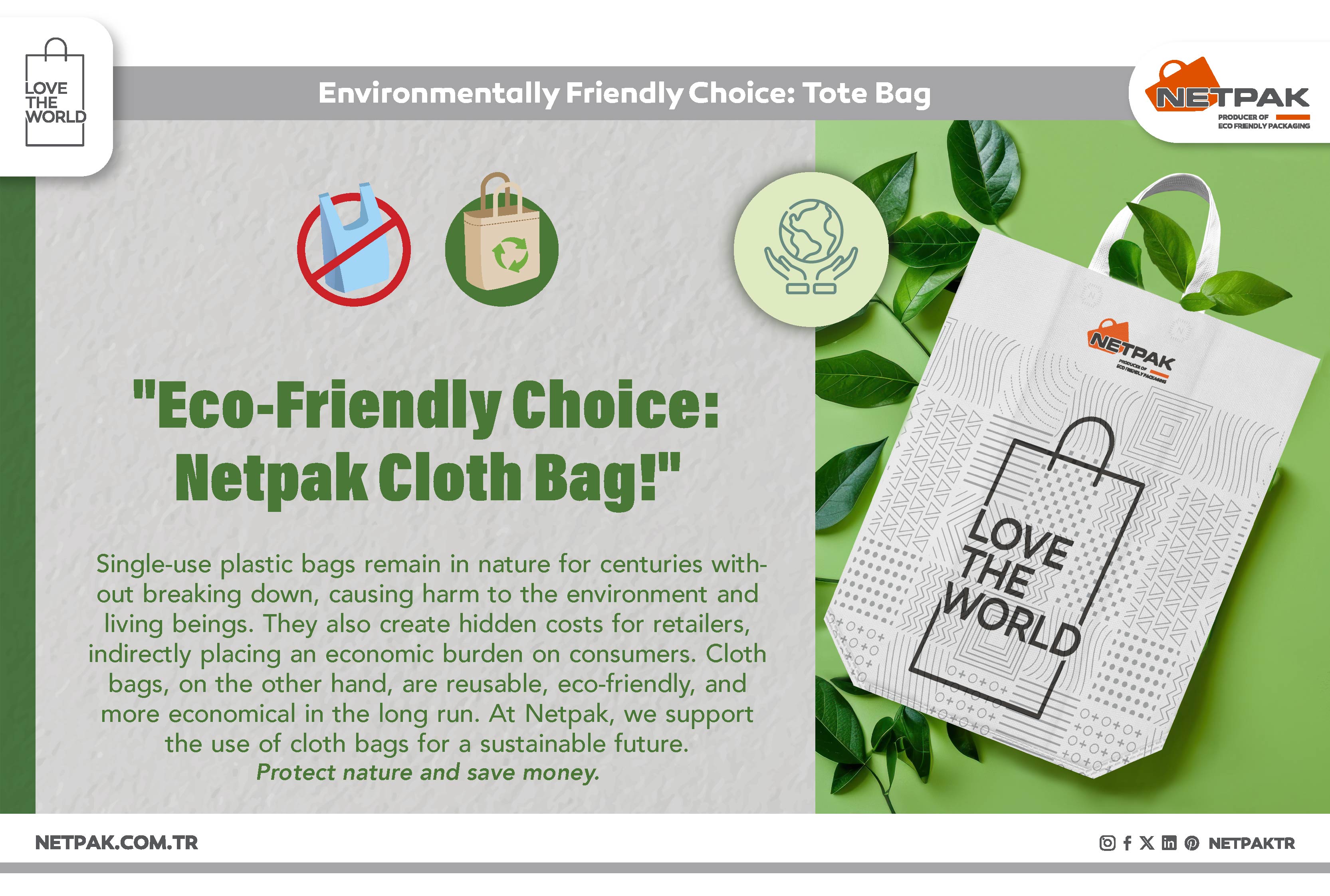
COMMON MISCONCEPTIONS
Single-Use Plastic Bags Are Not Cheaper Than Fabric Bags (Nonwoven Bags)
Although single-use plastic bags may seem cheap at first glance, they create a significant burden on the environment and the economy due to their non-biodegradable nature, the harm they cause to the world, and their excessive consumption. More than 80% of the world, including the European Union, has banned or charged for single-use plastic bags. Although single-use plastic bags have been subject to a fee in Turkey since 2019, their consumption continues to increase because they are sold far below cost.
| Feature |
Plastic Bag |
Fabric Carrier Bag |
| Bag Size |
30X55X8X8 |
30X55X8X8 |
| Thickness |
Double layer 40 microns |
30 g/m² Nonwoven |
| Pieces / 1 kg |
103 Pieces |
61 Pieces |
| Price per 1 kg |
61 TRY + 20% VAT |
97.6 + 10% VAT |
| Price per Piece |
0.71 TRY |
1.76 TRY |
| GEKAP 2025 (Recycling Contribution Fee) |
0.86 TRY/Piece |
0 TRY |
| Cost to Supermarket per Piece |
1.57 TRY |
1.76 TRY |
| Selling Price per Piece |
0.50 TRY |
2.5 TRY |
Single-Use Plastic Bag vs. Fabric Bag: A Real Cost Comparison
While the cost of a single-use plastic bag to the supermarket is approximately 1.57 TRY per piece, selling it to the consumer for 0.50 TRY leads to an unsustainable loss for the supermarkets. As a commercial enterprise, a supermarket cannot operate at a loss; doing so would make its operations unsustainable. Therefore, the supermarket, which loses approximately 1 TRY on each single-use plastic bag, compensates for this difference by reflecting it in the prices of other products, indirectly charging the customer much more. The compensation for this loss creates an indirect cost increase by being passed on to the prices of other goods. A supermarket customer thinks they are only paying 0.50 TRY for a single-use plastic bag while a fabric carrier bag costs 2.5 TRY; however, the cost of this apparent cheapness is reflected in the prices of other products, causing much more to come out of the customer's pocket.
Various studies are being conducted worldwide on carrier packaging. According to the results of this research, carrier bags made from nonwoven and woven technical fabrics, commonly referred to as fabric bags, are the most suitable alternative. According to the study "Comparison of Existing Life Cycle Analysis of Shopping Bag Alternatives" by RMIT University in Melbourne, Australia: Nonwoven bags are the most advantageous option in indicators such as material consumption, global warming impact, energy use, water consumption, and waste amount. They can be used an average of 104 times and are 100% recyclable at the end of their life. In these aspects, they offer a much more sustainable solution compared to single-use plastic bags, both environmentally and economically.
| Bag Type |
Image |
Material Consumption |
Global Warming |
Energy Consumption |
Water Usage |
Harm to Marine Biodiversity |
Waste Amount |
Recycling Options |
| Reusable Nonwoven Bag |
 |
1 |
1 |
1 |
1 |
1 |
1 |
All Recycling Bins |
| Kraft Bag |
 |
5 |
3 |
2 |
1 |
1 |
1 |
All Recycling Bins |
| Single-Use LDPE Bag |
 |
5 |
5 |
5 |
1 |
5 |
5 |
All Recycling Bins |
| Raw Cotton Bag |
 |
1 |
1 |
1 |
5 |
1 |
1 |
Not Recyclable |
Reference: Rae Dilli, Peter Allan. EcoRecycle Victoria. RMIT University, Melbourne.
"Life Cycle Assessment for Paper and Packaging Waste Management Scenarios in Victoria", 2007.
Conclusion: A Small Choice, A Big Impact
Nonwoven fabric bags are:
- Economical
- Eco-friendly
- Durable
- Compatible with Zero Waste goals.
The seemingly low price of single-use plastic bags misleads consumers. In reality, supermarkets charge more by reflecting this difference in the prices of other products. Nonwoven bags, on the other hand, are durable, recyclable, and fully compatible with our Zero Waste goals. The point that should not be overlooked here is this: the alternative to plastic is still plastic; if it can be used repeatedly and recycled at the end of its life, this plastic is a valuable product that benefits our economy, environment, exports, and industry. Therefore, supporting this sector in our country is a strategic priority in terms of environmental policies, reducing imports, and increasing exports.
11.09.2025